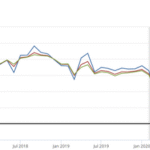It wasn’t long ago that Europe seemed poised to shape the future of global tech. The continent has the brains, the history, the universities, and some of the best engineering talent in the world. But somewhere along the way, something got lost in translation between potential and performance — and now, Europe is struggling to keep up.
Look at the headlines: American and Chinese tech companies are pushing boundaries in AI, semiconductors, biotech, and cloud computing. Meanwhile, Europe’s biggest players are often in catch-up mode, not setting the pace.
So what’s going wrong?
Part of the answer lies in the structure. Europe isn’t one single country. It’s dozens. That means dozens of legal systems, tax codes, data rules, and digital standards. For tech startups trying to scale, that’s a nightmare. What takes six months in California can take twice as long in Europe — and cost more.
Then there’s the issue of funding. The money just doesn’t flow the same way. In Silicon Valley, billion-dollar bets on moonshot ideas are almost normal. In Europe, investors are more cautious — sometimes painfully so. Pension funds barely touch venture capital. As a result, European startups often stall or get bought out before they can reach their full potential.
And while regulation is meant to protect, it sometimes gets in the way. Europe has led the world on data privacy, which has its merits. But when it comes to fast-evolving tech like artificial intelligence, the continent’s rules can feel more like red tape than guardrails. A young AI company in Berlin, for example, might spend more time dealing with compliance than building its product.
The talent issue is another thorn. Europe produces brilliant developers, researchers, and scientists — but too many of them leave. They’re drawn to the U.S. or China by better pay, faster-moving industries, and bigger budgets. And once they go, they rarely come back.
Even infrastructure’s a problem. High electricity costs make it expensive to run data centers. Europe still doesn’t have enough high-performance computing power to compete in fields like AI training or quantum research. These might sound like niche problems, but they add up — and they matter.
Now, it’s not all bad news. The European Union is trying to fix some of this. There are efforts underway to create a more unified digital market. Officials are pushing for more tech investment, and programs exist to keep homegrown talent on the continent. But progress is slow — and the gap between Europe and the rest of the world is growing faster.
Here’s the harsh truth: tech isn’t just about gadgets and apps anymore. It’s about power, influence, and who gets to shape the future. Right now, Europe risks being left on the sidelines.
Unless something changes — and fast — the continent might go from being a player in the digital world to just a customer.




















